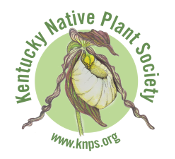By Alicia Bosela, owner of Ironweed Native Plant Nursery
At the nursery, an inquisitive couple wanted native plants for their new cabin home: “We’d like plants that our grandmothers would’ve had.” To their surprise, I asked, “Which grandmother?” meaning a couple generations ago or when most plants at hand were still native?
Ethnobotany is the study of the interrelations between people and plants in the past. Beginning in roughly 1000AD the three sisters: corn, beans, and squash were the primary crops used by indigenous people of North America. They reached the Midwest from Mexico and became the dominant crops. Before 1000AD, during the Woodland period, crops were also grown but they were developed from native plants. These native plants still exist today, though in wild form.
The Eastern Agricultural Complex (EAC) refers to a geographic area centered on the Mississippi River and encompassing all adjoining states. Kentucky is at the core of that geographic area. The EAC is one center of domestication in the pre-historic world in which domesticated native plants were largely abandoned in favor of corn, hence, “the lost crops.”
A handful of native plants were domesticated including little barley, village goosefoot, upright knotweed, marsh elder, and Carolina maygrass. Though special, these plants are not remotely ornamental. Interesting research is being done to understand many questions about their domestication and use. As a tie in, foragers and those interested in wild edibles might enjoy a detailed talk by Dr. Natalie Mueller of Cornell University. A few in the “local food” movement have begun to experiment with these plants in their dishes.


Perhaps these plants have value in Environmental Education, introducing an appreciation of early agriculture to folks, young and old. Might there be a use someday for these plants for those interested in sustainability? Regardless, the inquisitive couple who visited the nursery for native plants used by their grandmother have a colorful array of options and a marvelous starting point to explore on our natural heritage over an expanse of time.
Plants mention in this article
Little barley (Hordeum pusillum)
Village goosefoot (Chenopodium berlandieri)
Upright knotweed (Polygonum erectum)
Marsh elder (Iva annua)
Carolina maygrass (Phalaris caroliniana)
Alicia Bosela owns Ironweed Native Plant Nursery in Columbia Kentucky, a certified woman-owned business. Before opening her own nursery, she was the Assistant Director of Clay Hill Memorial Forest Environmental Education Center. You can contact her at www.ironweednursery.com.
